-
 Bitcoin
Bitcoin $102,954.6793
-0.93% -
 Ethereum
Ethereum $2,504.7246
1.54% -
 XRP
XRP $2.6057
11.00% -
 Tether USDt
Tether USDt $1.0001
0.00% -
 BNB
BNB $667.2233
2.50% -
 Solana
Solana $175.5920
2.82% -
 USDC
USDC $0.9999
-0.01% -
 Dogecoin
Dogecoin $0.2350
3.90% -
 Cardano
Cardano $0.8285
4.64% -
 TRON
TRON $0.2744
5.02% -
 Sui
Sui $3.9909
1.29% -
 Chainlink
Chainlink $16.9538
1.63% -
 Avalanche
Avalanche $24.9856
2.39% -
 Stellar
Stellar $0.3235
6.22% -
 Shiba Inu
Shiba Inu $0.0...01609
1.85% -
 Hedera
Hedera $0.2241
10.59% -
 Toncoin
Toncoin $3.4455
1.62% -
 Bitcoin Cash
Bitcoin Cash $413.8972
1.70% -
 Hyperliquid
Hyperliquid $24.5150
1.12% -
 Polkadot
Polkadot $5.1435
1.88% -
 Pi
Pi $1.1438
7.14% -
 UNUS SED LEO
UNUS SED LEO $8.4955
2.05% -
 Litecoin
Litecoin $101.2848
1.94% -
 Monero
Monero $336.9017
0.19% -
 Pepe
Pepe $0.0...01387
4.12% -
 Bitget Token
Bitget Token $4.7592
-1.35% -
 Dai
Dai $0.9999
0.01% -
 Ethena USDe
Ethena USDe $1.0005
0.05% -
 Uniswap
Uniswap $6.9658
2.42% -
 Bittensor
Bittensor $455.8162
2.76%
How to clean the Exodus cache? Will it affect the wallet data?
Cleaning the Exodus cache improves performance without affecting wallet data; follow steps to close app, delete cache files, and restart for a smoother experience.
May 11, 2025 at 12:49 pm
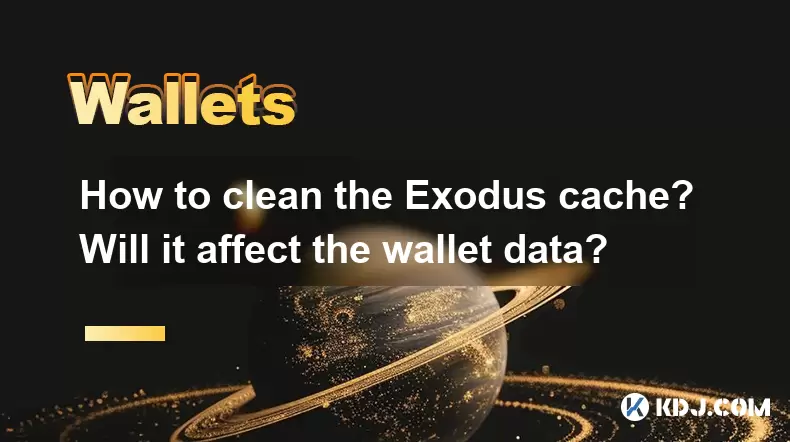
Cleaning the cache in the Exodus wallet is a routine maintenance task that can help improve the performance of the application. However, many users are concerned about whether this action will affect their wallet data. In this article, we will guide you through the process of cleaning the Exodus cache and explain why it does not impact your wallet data.
Understanding the Exodus Cache
The Exodus wallet uses a cache to store temporary data that helps the application run more efficiently. This cache includes information such as transaction histories, market data, and other frequently accessed data. Over time, this cache can grow and potentially slow down the application. Cleaning the cache is a way to clear out this temporary data and improve the wallet's performance.
Why Clean the Exodus Cache?
Cleaning the Exodus cache can be beneficial for several reasons. It can help to resolve issues such as slow performance, freezing, or crashing of the application. By removing outdated or corrupted data, the wallet can operate more smoothly. Additionally, cleaning the cache can free up space on your device, which can be particularly important for users with limited storage capacity.
Will Cleaning the Cache Affect Wallet Data?
One of the primary concerns for users is whether cleaning the Exodus cache will affect their wallet data, such as private keys, addresses, and transaction history. Fortunately, cleaning the cache does not impact your wallet data. The cache contains only temporary data that can be easily regenerated by the application. Your private keys and wallet information are stored securely in a separate location and are not affected by clearing the cache.
Steps to Clean the Exodus Cache
To clean the Exodus cache, follow these detailed steps:
Close the Exodus Wallet: Ensure that the Exodus application is completely closed before proceeding. This can be done by right-clicking on the Exodus icon in the system tray (Windows) or the menu bar (Mac) and selecting "Exit."
Locate the Cache Folder: The location of the cache folder varies depending on your operating system.
- Windows: Navigate to
C:\Users[YourUsername]\AppData\Roaming\Exodus\cache. - Mac: Navigate to
~/Library/Application Support/Exodus/cache. - Linux: Navigate to
~/.config/Exodus/cache.
- Windows: Navigate to
Delete the Cache Files: Once you have located the cache folder, you can delete all the files within it. You can do this by selecting all the files and pressing the "Delete" key on your keyboard.
Restart Exodus: After deleting the cache files, restart the Exodus application. The wallet will regenerate any necessary data and should operate more smoothly.
Troubleshooting Common Issues
If you encounter any issues after cleaning the Exodus cache, there are a few steps you can take to troubleshoot:
Check for Updates: Ensure that you are running the latest version of Exodus. Sometimes, updating the application can resolve performance issues.
Reinstall Exodus: If problems persist, you may want to consider reinstalling the Exodus wallet. This will not affect your wallet data, as it is stored separately from the application itself.
Contact Support: If you are still experiencing issues, you can reach out to the Exodus support team for further assistance. They can provide guidance specific to your situation.
Best Practices for Maintaining Your Exodus Wallet
In addition to cleaning the Exodus cache, there are other best practices you can follow to maintain your wallet:
Regular Backups: Regularly back up your wallet to ensure that you can recover your funds in case of any issues. Exodus provides an easy-to-use backup feature that you can access from the settings menu.
Keep Your Software Updated: Always keep your Exodus wallet and your operating system up to date. Updates often include performance improvements and security enhancements.
Use Strong Passwords: Protect your wallet with a strong, unique password. This will help prevent unauthorized access to your funds.
Monitor Your Transactions: Regularly review your transaction history to ensure that all transactions are legitimate and to quickly identify any suspicious activity.
Understanding the Difference Between Cache and Wallet Data
It is important to understand the difference between the cache and wallet data in the Exodus wallet. The cache contains temporary data that can be cleared without affecting the security or integrity of your wallet. Wallet data, on the other hand, includes your private keys, addresses, and transaction history, which are stored securely and separately from the cache. Cleaning the cache will not impact your wallet data, as the wallet will regenerate any necessary information from the secure storage.
Frequently Asked Questions
Q: How often should I clean the Exodus cache?
A: It is recommended to clean the Exodus cache every few months or whenever you notice performance issues. However, the frequency can vary based on your usage and the specific issues you encounter.
Q: Can cleaning the cache resolve issues with transaction syncing?
A: Cleaning the cache can sometimes help resolve issues with transaction syncing by removing corrupted data. However, if the problem persists, you may need to take additional steps, such as reinstalling the wallet or contacting support.
Q: Is it safe to clean the cache on a mobile version of Exodus?
A: Yes, it is safe to clean the cache on the mobile version of Exodus. The process is similar to the desktop version, and it will not affect your wallet data. You can clear the cache through your device's settings under the application management section.
Q: What should I do if I accidentally delete important files while cleaning the cache?
A: If you accidentally delete important files while cleaning the cache, do not panic. The cache contains only temporary data, and the wallet will regenerate any necessary information. If you encounter issues, you can restore your wallet from a backup or contact Exodus support for assistance.
Disclaimer:info@kdj.com
The information provided is not trading advice. kdj.com does not assume any responsibility for any investments made based on the information provided in this article. Cryptocurrencies are highly volatile and it is highly recommended that you invest with caution after thorough research!
If you believe that the content used on this website infringes your copyright, please contact us immediately (info@kdj.com) and we will delete it promptly.
- Missed Bonk's Early Days? Arctic Pablo Might Just Be The Top Meme Coin 2025 You've Been Waiting For
- 2025-05-13 00:25:12
- Pi Coin (PI) Price Prediction: Pi Network (PIN) Token Rockets 130% Ahead of May 14 Update
- 2025-05-13 00:25:12
- DOGE Price Explodes as Social Buzz and Whale Moves Accelerate
- 2025-05-13 00:20:13
- Uniswap Has Just Etched Its Name into the Digital Marble of the Crypto Universe. Three Trillion Dollars in Cumulative Volume.
- 2025-05-13 00:20:13
- Solana (SOL) Price Will Soon Break $200 Resistance Targeting New All-Time Highs: Charts
- 2025-05-13 00:15:13
- title: Bitcoin (BTC) Holding Company Nakamoto Merges with KindlyMD to Form a $710M Publicly Traded BTC Treasury
- 2025-05-13 00:15:13
Related knowledge
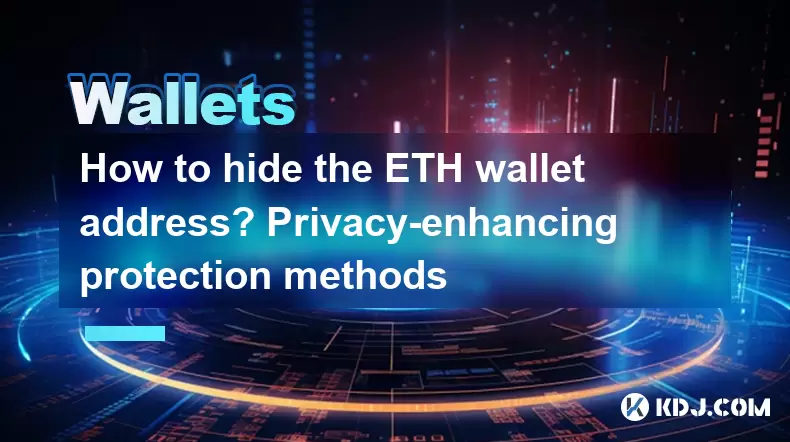
How to hide the ETH wallet address? Privacy-enhancing protection methods
May 13,2025 at 12:28am
Protecting your Ethereum (ETH) wallet address is crucial for maintaining privacy and security within the cryptocurrency space. With the growing concerns over privacy breaches and hacking attempts, it is essential to understand various methods that can help you hide your ETH wallet address effectively. This article will delve into several privacy-enhanci...
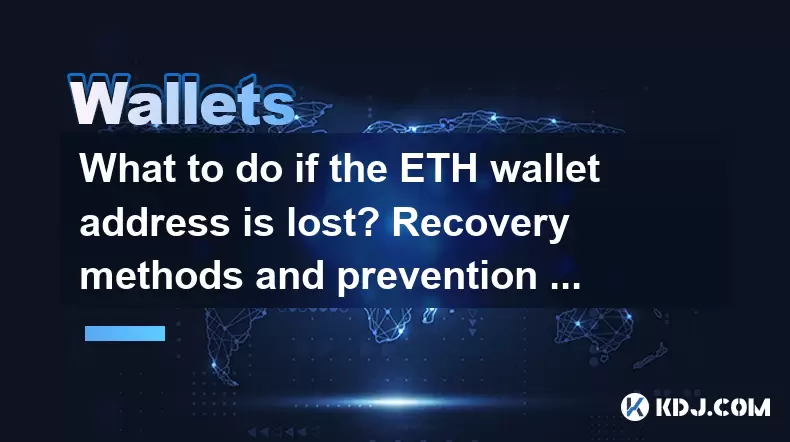
What to do if the ETH wallet address is lost? Recovery methods and prevention suggestions
May 13,2025 at 12:42am
Losing an Ethereum (ETH) wallet address can be a distressing experience, especially if it contains significant funds. However, there are several recovery methods and preventive measures you can take to mitigate the risk and potentially recover your lost wallet. This article will guide you through the steps to recover a lost ETH wallet address and provid...

How to export an ETH wallet address? Guide to private key and mnemonic management
May 12,2025 at 09:28pm
Managing your Ethereum (ETH) wallet effectively involves understanding how to export your wallet address, and how to securely manage your private keys and mnemonic phrases. This guide will walk you through the steps to export your ETH wallet address and provide detailed instructions on managing your private keys and mnemonic phrases. Exporting Your ETH ...
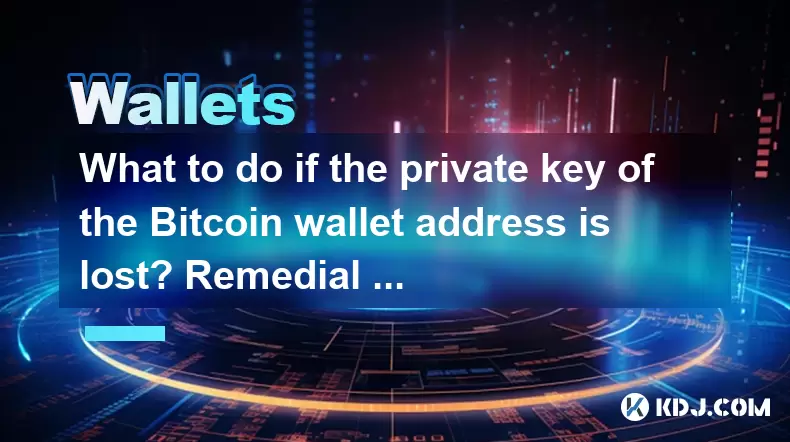
What to do if the private key of the Bitcoin wallet address is lost? Remedial measures analysis
May 12,2025 at 07:14pm
Losing the private key of a Bitcoin wallet address can be a distressing situation for any cryptocurrency holder. The private key is essential for accessing and managing the funds stored in the Bitcoin address. Without it, the owner is unable to spend or transfer the bitcoins associated with that address. In this article, we will explore various remedial...
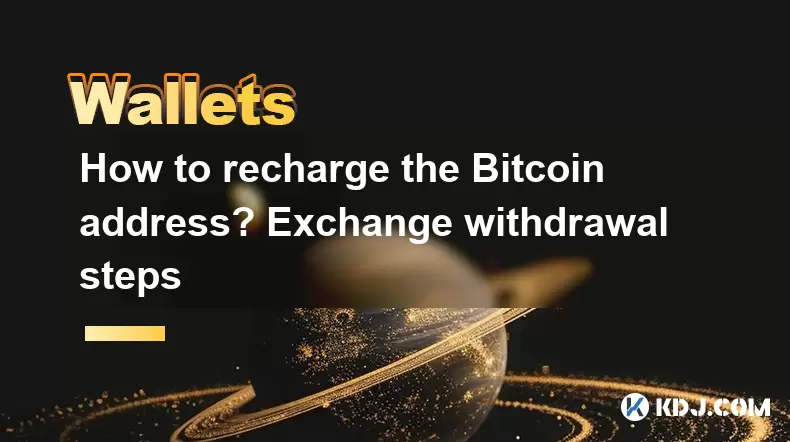
How to recharge the Bitcoin address? Exchange withdrawal steps
May 12,2025 at 11:36pm
Introduction to Recharging a Bitcoin AddressRecharging a Bitcoin address involves transferring Bitcoin from an exchange or another wallet to your designated Bitcoin address. This process is often referred to as a withdrawal from the exchange and a deposit to your wallet. Understanding how to recharge your Bitcoin address safely and efficiently is crucia...
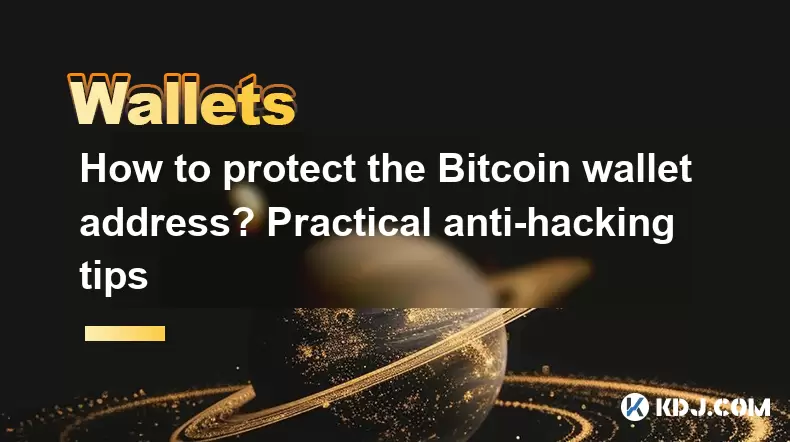
How to protect the Bitcoin wallet address? Practical anti-hacking tips
May 13,2025 at 01:00am
Protecting your Bitcoin wallet address is crucial in safeguarding your digital assets from potential hackers and malicious actors. Bitcoin, as a decentralized digital currency, relies heavily on the security measures implemented by its users. By understanding and applying practical anti-hacking tips, you can significantly reduce the risk of losing your ...

How to hide the ETH wallet address? Privacy-enhancing protection methods
May 13,2025 at 12:28am
Protecting your Ethereum (ETH) wallet address is crucial for maintaining privacy and security within the cryptocurrency space. With the growing concerns over privacy breaches and hacking attempts, it is essential to understand various methods that can help you hide your ETH wallet address effectively. This article will delve into several privacy-enhanci...

What to do if the ETH wallet address is lost? Recovery methods and prevention suggestions
May 13,2025 at 12:42am
Losing an Ethereum (ETH) wallet address can be a distressing experience, especially if it contains significant funds. However, there are several recovery methods and preventive measures you can take to mitigate the risk and potentially recover your lost wallet. This article will guide you through the steps to recover a lost ETH wallet address and provid...

How to export an ETH wallet address? Guide to private key and mnemonic management
May 12,2025 at 09:28pm
Managing your Ethereum (ETH) wallet effectively involves understanding how to export your wallet address, and how to securely manage your private keys and mnemonic phrases. This guide will walk you through the steps to export your ETH wallet address and provide detailed instructions on managing your private keys and mnemonic phrases. Exporting Your ETH ...

What to do if the private key of the Bitcoin wallet address is lost? Remedial measures analysis
May 12,2025 at 07:14pm
Losing the private key of a Bitcoin wallet address can be a distressing situation for any cryptocurrency holder. The private key is essential for accessing and managing the funds stored in the Bitcoin address. Without it, the owner is unable to spend or transfer the bitcoins associated with that address. In this article, we will explore various remedial...

How to recharge the Bitcoin address? Exchange withdrawal steps
May 12,2025 at 11:36pm
Introduction to Recharging a Bitcoin AddressRecharging a Bitcoin address involves transferring Bitcoin from an exchange or another wallet to your designated Bitcoin address. This process is often referred to as a withdrawal from the exchange and a deposit to your wallet. Understanding how to recharge your Bitcoin address safely and efficiently is crucia...

How to protect the Bitcoin wallet address? Practical anti-hacking tips
May 13,2025 at 01:00am
Protecting your Bitcoin wallet address is crucial in safeguarding your digital assets from potential hackers and malicious actors. Bitcoin, as a decentralized digital currency, relies heavily on the security measures implemented by its users. By understanding and applying practical anti-hacking tips, you can significantly reduce the risk of losing your ...
See all articles






















































































